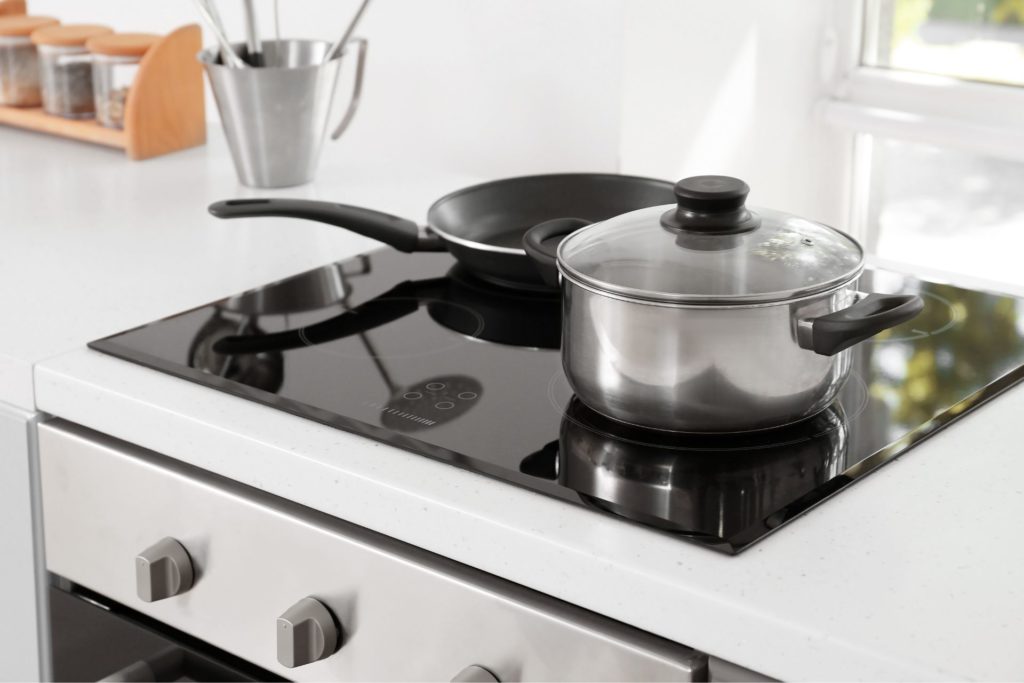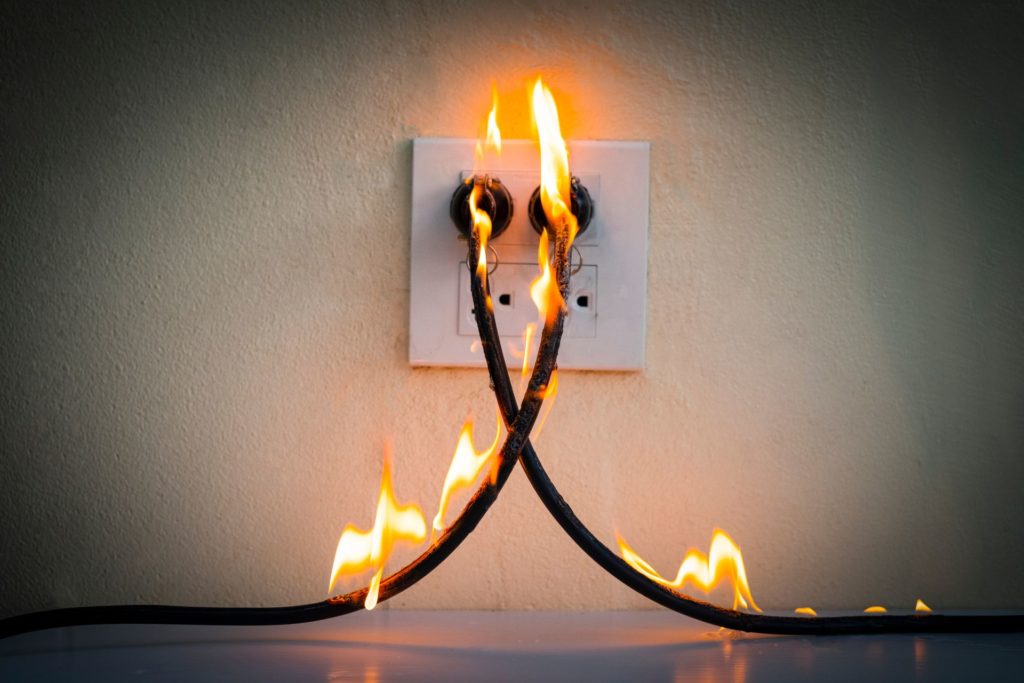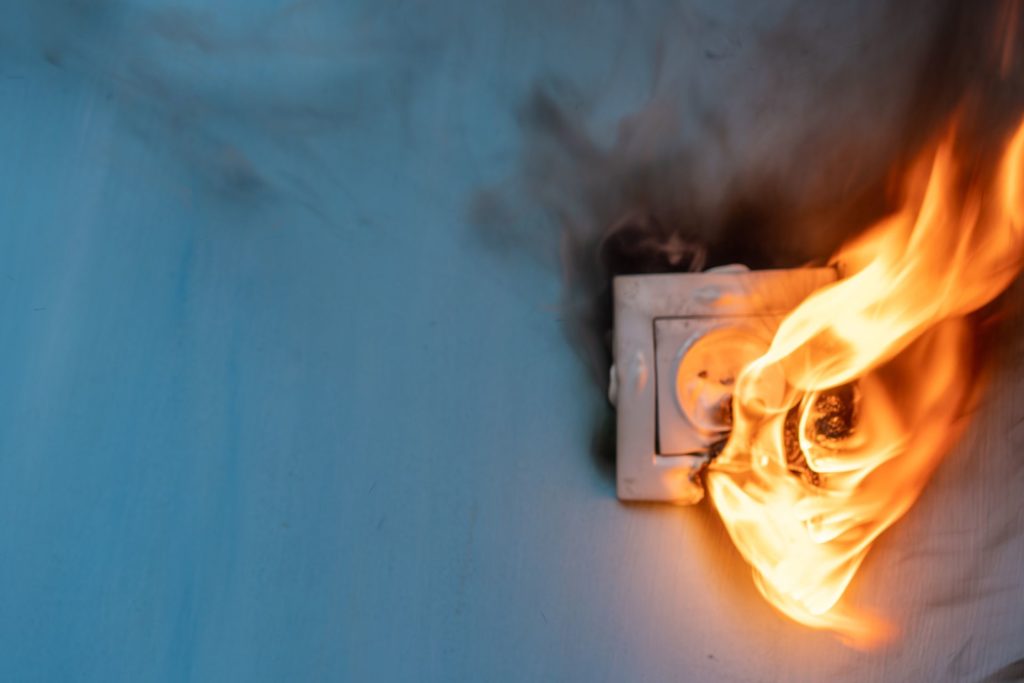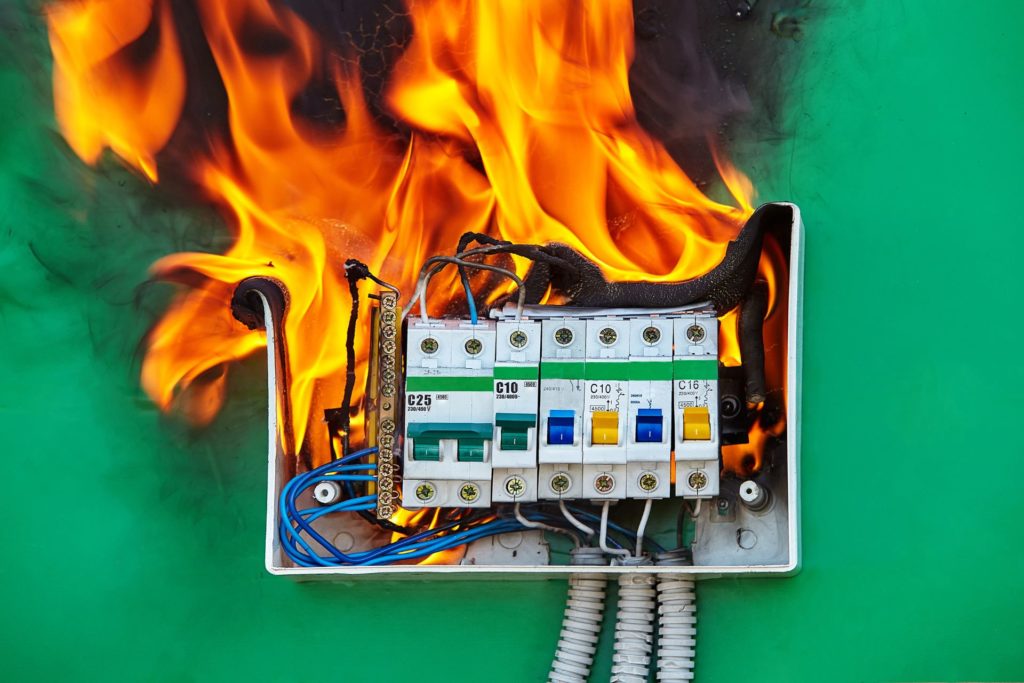Are electric stoves harmless? Modern appliances have safety features that prevent disastrous accidents. However, can you trust those safety features to protect you if you leave your electric stove on all night?
That question matters because people are constantly forgetting to turn their stoves off. Even if you’re too careful to make this mistake, you cannot help but check the stove over and over again at the end of each night because of the notion of leaving the appliance on worries you.
What Happens If You Leave Electric Stove On All Day/Night?
Nothing happens. You can leave these devices on for the whole night without causing any harm to your property or the stove because electric stoves have security features that prevent unexpected accidents. You don’t have to worry about these devices catching fire or breaking down because you left them on for too long.
Electric stoves can technically run indefinitely. Additionally, the security features in question will not permit the stove to remain in operation for too long.
Instead, they will shut the appliance down, reducing your electric bill in the long run.
Gas appliances seem like the more significant issue. After all, if things go wrong, everyone in your house may die of carbon monoxide poisoning. Also, a heat source may ignite the leaking gas, leading to fire or an explosion.
Is It Safe/Dangerous? Things To Consider Before Running Electric Stove On Overnight
It is not safe. You run the risk of starting a fire. Now, that won’t make sense if the manual told you that electric stoves could run indefinitely. But the manuals are not actually wrong. You can leave this appliance on for the whole day or night. It won’t catch fire or anything. Instead, you have to watch out for the following culprits:
1). Check The Flammable Material
First of all, do you have any flammable materials in the area? Leaving the stove or oven on may generate enough heat to ignite the items in the vicinity. Again, the appliance won’t catch fire.
Instead, you have to worry about the curtains, newspapers, and clothing articles around the appliance. If you’re not at home, or if you’re asleep, you won’t notice the fire until it’s too late. Therefore, you can’t take any chances. Switch the stove off.
2). Check If Food Can Start A Fire

Again, the stove won’t catch fire. Your biggest concern is the food on the stove. Oily and greasy foods are problematic because they can ignite, starting a fire, especially if you allow the grease, oil, and fat to cover the heating elements.
Oily and fatty foods can start fires at any time of the day. However, they are more dangerous at night because you’re not around to put out any fires that start.
Oily and fatty foods are not your only concern. Any food item can become a fire hazard if the stove stays on long enough for the liquids to evaporate completely.
You should remember these two concerns before you proceed. Check the stove. Did you leave a pot on the appliance? Are the surroundings littered with flammable items?
In the absence of food or flammable materials on or around the appliance, your electric stove can stay on all night without starting any fire.
What About Leaving Electric Stove On Low?
Technically speaking, the stove is less likely to start a fire if you leave the appliance on a lower setting because it will produce less heat. However, does that guarantee your safety? No, it doesn’t. Several things can still go wrong, including the following:
1). What If There Is Flammable Material?
Flammable items in the vicinity are still a problem. Even if you left the contents of your pot on a low simmer, what if a newspaper falls on the heating elements?
You cannot account for every variable. The wind could easily blow the curtain against the pot. This is why you can’t take any chances. If a fire starts, you won’t respond quickly enough.
2). What If Wiring Is Loose?
Electric stoves are reliable. However, they are not infallible. What if a loose wire leads to arcing? During the daytime, you would simply shut the appliance off.

But you can’t do anything at night because you’re too busy sleeping. The fact that you left the stove on a low heat setting won’t stop the arcing from starting a fire.
3). What If The Outlet Is Faulty?
Have you stopped to consider the destruction a faulty outlet can cause? Most homeowners expect the fire to start from the stove. But the stove is unlikely to catch fire unless it has a defect.
These devices are tested thoroughly to ensure that consumers can leave them on for long periods without causing serious harm. On the other hand, outlets fail all the time.

The outlet may also break, exposing the live conductors. Again, if you notice arcing in an outlet during the day, you can simply de-energize the circuit using the main breaker.
But if you’re fast asleep at night and you left the stove on, the arcing will continue until it starts a fire. The low heat setting of the stove won’t make a difference.
4). What If You Overload The CIrcuit?
If you trust the outlets, what about the wiring? If the stove is hardwired, outdated wiring can still set your home ablaze, especially if you expect the worn-out conductors to transmit massive quantities of electricity.

Even if the wires are not outdated, you may overload the circuit. You see this in homes whose circuits are not large enough to accommodate an electric stove. The same thing will happen if the circuit is the right size, but the cables are too small.
This is why extension cords are such a bad idea. They cannot withstand as much current as ordinary electrical wiring. Even if you get an extension cord with a thick gauge, you can still overwhelm it if someone connects additional appliances.
None of these factors have taken into account the most problematic of all the variables: children. What happens when young children walk into a kitchen with an active stove in the middle of the night? They will get burned or electrocuted, which is the last thing you want.
How Long Can You Leave Electric Stove On?
You can keep an electric stove on for 12 hours. That number is not random. Appliances of this nature will shut themselves off after 12 hours.
Therefore, you can’t leave the stove on indefinitely. Manufacturers do not expect their stoves to explode or ignite because you left them on for long periods. However, they also recognize that it is not safe to leave a heavy-duty appliance like a stove or oven on for long periods.
For that reason, they have included an automatic shutdown mechanism. If you don’t know whether or not you have this feature, check the manual. Although, you can trust most appliances with touchpad clocks to shut themselves down automatically.
However, this does not apply to older stoves. Don’t expect appliances made before 1995 to offer this feature. If you have doubts, talk to the manufacturer.
How Should I Not Forget To Turn It Off? Safety Tips
Buy automatic shut-off devices. These devices will deactivate the stove after a pre-set duration. You can also prevent other people from using the stove during certain times.
This lockout feature will prevent children from tampering with the stove at night.
Some auto-shut-off devices have apps. You can use these online tools to remotely turn your stove on and off. With an auto shut-off device, you never have to worry about forgetting to turn the electric stove off.
If you can’t afford these products, take the necessary precautions. That includes removing all the pots and pans. Don’t leave food unattended on the stove.
You should also keep flammable items such as rugs, sheets, and curtains away from the stove. If you notice disturbing signs such as arcing and outdated wires, hire a technician to fix these issues.
Related Post:

